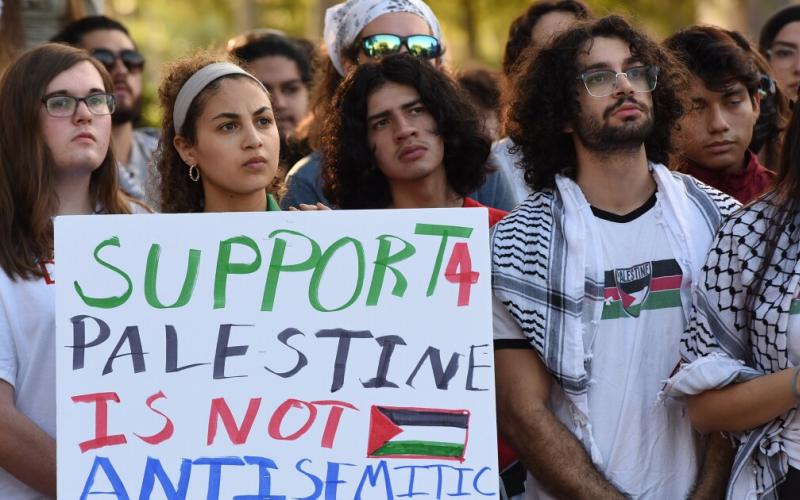Do Student Protests Impact U.S. Policy Towards "Israel"?

The escalating student protests in American universities cannot be ignored due to their potential repercussions on the future of U.S. policy, which has historically been marked by unwavering and long-standing support for "Israel."
This wave of student activity in major U.S. universities demands an end to what they term the Israeli genocide in Gaza and the occupation of Palestine, often under the context of ending their universities' dealings with the Israeli government and academic institutions.
Compared to historical patterns where student movements deeply influenced U.S. domestic and foreign policies—like the Civil Rights Movement and the Vietnam War protests in the 1960s—today's solidarity protests with the Palestinian people are not merely a fleeting phenomenon but a pivotal moment in redefining U.S.-Israel relations.
The 1960s were marked by intense student activity in American universities. These protests played crucial roles in reshaping public opinion and policy related to civil rights and the Vietnam War. These movements effectively pushed for landmark legislation such as the Civil Rights Act of 1964 and the Voting Rights Act of 1965. They also forced the U.S. government to reconsider its military and strategic stances, particularly accelerating the withdrawal from Vietnam in response to the steadfast Vietnamese resistance against U.S. and allied forces.
Today, history seems to be repeating itself, albeit differently, as student protests across the United States draw attention to another just cause—the long-standing issue of occupied Palestine and its people.
Israeli Prime Minister Netanyahu's tense and explicit criticisms of these protests, alongside his demands for their swift cessation and the apparent anxiety among current and former Israeli officials about the potential repercussions of these protests on future relations with the United States, underscore the significance of these protests. The official American reactions reflect a fear that these protests could shift public opinion in the U.S., as seen in the 1960s.
Traditionally, U.S. authorities have employed a multifaceted approach to suppress student protests, ranging from physical repression to arrests, surveillance, spying on student leaders, and threats of future unemployment and reputational damage. This pattern is evident in how U.S. authorities are handling the pro-Palestine student protests, with journalistic and human rights reports highlighting the use of familiar suppression strategies.
The question arises: Will these protests lead to a significant shift in U.S. policy towards Israel? The possibility for change is real. Just as the Civil Rights Movement eradicated institutionalized racial discrimination and protests contributed to ending the Vietnam War, today's student movements could force the U.S. administration and various official institutions to reconsider their unlimited political, economic, and military support for "Israel" and its policies.
Some may argue that U.S. support for Israel is too entrenched to be altered by current student protests. However, history tells a different story. Recent history shows that entrenched racist laws and policies in the U.S. were abandoned under the pressure of student protests and shifts in public opinion. Similarly, the U.S. administration and its institutions once viewed the Vietnam War as a defense of U.S. strategic and political interests, yet they changed course.
As the U.S. faces increasing internal and external pressures to reevaluate its stance on "Israel" and the political and moral costs of its support mount, the echoes of past student movements provide a blueprint for understanding and anticipating changes in this policy.
It remains to be seen whether the current U.S. administration will heed the lessons of the past and present, but one thing is clear: the power of student protests in shaping U.S. policy cannot be denied. As the protests continue, there is a significant possibility of changes in U.S. policy towards Israel.












































